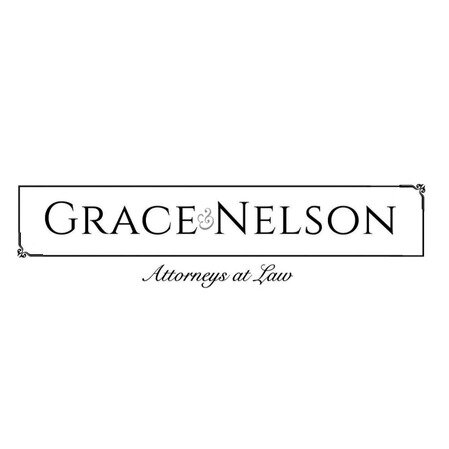Best Real Estate Contracts and Negotiations Lawyers in Ecuador
Share your needs with us, get contacted by law firms.
Free. Takes 2 min.
Free Guide to Hiring a Real Estate Lawyer
Or refine your search by selecting a city:
List of the best lawyers in Ecuador
About Real Estate Contracts and Negotiations in Ecuador
Real estate contracts and negotiations in Ecuador involve the legal processes and agreements associated with buying, selling, or leasing property. This includes drafting deeds, agreements of sale, leasing agreements, and other related documents that ensure the rights and obligations of all parties are legally secured and enforceable. Ecuador's real estate market offers unique opportunities, especially with its diverse landscapes and growing economy, but navigating it requires a sound understanding of local laws and regulations.
Law in Ecuador: A Brief Overview of Real Estate Contracts and Negotiations
Ecuador’s legal framework for real estate is rooted in its National Constitution and codified in the Civil Code, Commerce Code, and the special laws related to urban development and land use. These regulations govern how real estate transactions are conducted, providing mechanisms to ensure legal compliance, fair dealings, and protection of property rights. The complexity arises from regional differences and specific documentation required by local municipalities, making legal guidance crucial.
Why You May Need a Lawyer
There are several common situations where legal advice in real estate can be invaluable:
- Understanding and navigating the property purchase process.
- Drafting and reviewing sale or lease contracts to ensure they are comprehensive and comply with local laws.
- Resolving disputes arising from property transactions or contracts.
- Conducting title searches to verify ownership and encumbrances on a property.
- Managing negotiations to ensure favorable terms.
- Advising on compliance with zoning and land use regulations.
Local Laws Overview
Several key aspects of local laws are particularly relevant:
- Property Ownership: Foreigners can own property in Ecuador with the same rights as nationals, though certain coastal or frontier lands may have restrictions.
- Contractual Obligations: Contracts must be clear in terms of price, property description, and parties involved. They also require registration in the Property Registry.
- Notary Involvement: Notarization is essential for most real estate transactions, to ensure authenticity and legality.
- Title Searches: This involves checking the property’s history and any existing debts or encumbrances.
Frequently Asked Questions
1. Can foreigners buy property in Ecuador?
Yes, foreigners can buy property in Ecuador and have the same ownership rights as Ecuadorians. However, there are restrictions in certain areas, such as military zones or borders.
2. What is the role of a notary in real estate transactions?
A notary in Ecuador authenticates documents, ensuring that the transaction is legal and binding. Their involvement is mandatory for the sale or transfer of real estate.
3. What should a real estate contract in Ecuador include?
A contract must include the identification of parties, detailed property description, agreed price, payment terms, and any specific conditions or contingencies.
4. How is property registration done in Ecuador?
After the transaction, the property must be registered with the local Property Registry to confirm the buyer's ownership and ensure there are no competing claims.
5. What taxes are applicable to real estate transactions?
Taxes may include a transfer tax (around 1-1.5% of the sale price), notary fees, and registration fees, along with any applicable VAT if the property is sold by a company.
6. How long does it take to close a real estate transaction?
The process can take several weeks to months, depending on due diligence, contract negotiations, and administrative procedures at the Property Registry.
7. Are there specific laws governing rental agreements?
Yes, rental agreements in Ecuador are regulated under the Tenancy Law, which specifies the rights and obligations of both landlords and tenants.
8. What is the importance of due diligence in property purchases?
Due diligence assesses the property's legal status, ensuring there are no legal issues, debts, or encumbrances that could affect ownership.
9. What are the common pitfalls in real estate transactions?
Common issues include unclear property titles, undervaluation of property, and failure to comply with local zoning or building regulations.
10. Is it advisable to handle real estate transactions without a lawyer?
While not legally required, hiring a lawyer is advisable to navigate the complexities of Ecuadorian law and secure your investment against potential risks and conflicts.
Additional Resources
For further assistance, you may contact:
- The Ecuadorian Notary Association for information on notarial procedures.
- The Superintendence of Management and Property Registry for property registration issues.
- Local real estate attorneys or legal firms specializing in property law.
Next Steps
If you need legal assistance with real estate contracts and negotiations in Ecuador, consider the following steps:
- Consult a licensed real estate attorney familiar with Ecuadorian property law.
- Gather all necessary property documents for review by your legal advisor.
- Ensure all property transactions are duly notarized and registered.
- Engage in thorough due diligence with professional help to avoid legal disputes.
Lawzana helps you find the best lawyers and law firms in Ecuador through a curated and pre-screened list of qualified legal professionals. Our platform offers rankings and detailed profiles of attorneys and law firms, allowing you to compare based on practice areas, including Real Estate Contracts and Negotiations, experience, and client feedback.
Each profile includes a description of the firm's areas of practice, client reviews, team members and partners, year of establishment, spoken languages, office locations, contact information, social media presence, and any published articles or resources. Most firms on our platform speak English and are experienced in both local and international legal matters.
Get a quote from top-rated law firms in Ecuador — quickly, securely, and without unnecessary hassle.
Disclaimer:
The information provided on this page is for general informational purposes only and does not constitute legal advice. While we strive to ensure the accuracy and relevance of the content, legal information may change over time, and interpretations of the law can vary. You should always consult with a qualified legal professional for advice specific to your situation.
We disclaim all liability for actions taken or not taken based on the content of this page. If you believe any information is incorrect or outdated, please contact us, and we will review and update it where appropriate.
Browse real estate contracts and negotiations law firms by city in Ecuador
Refine your search by selecting a city.













